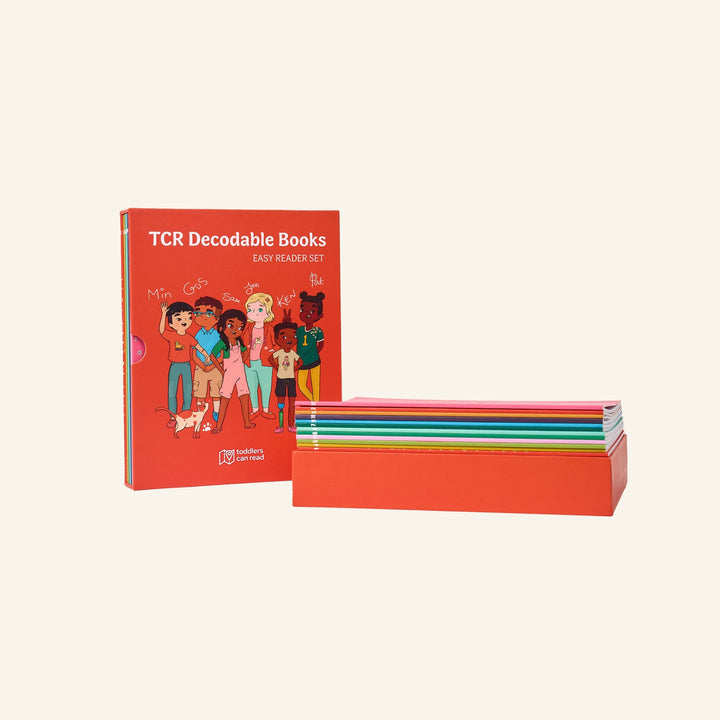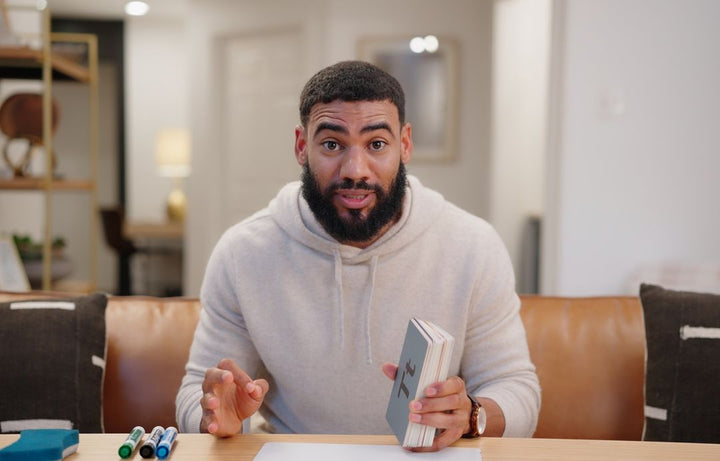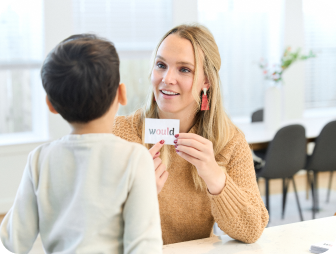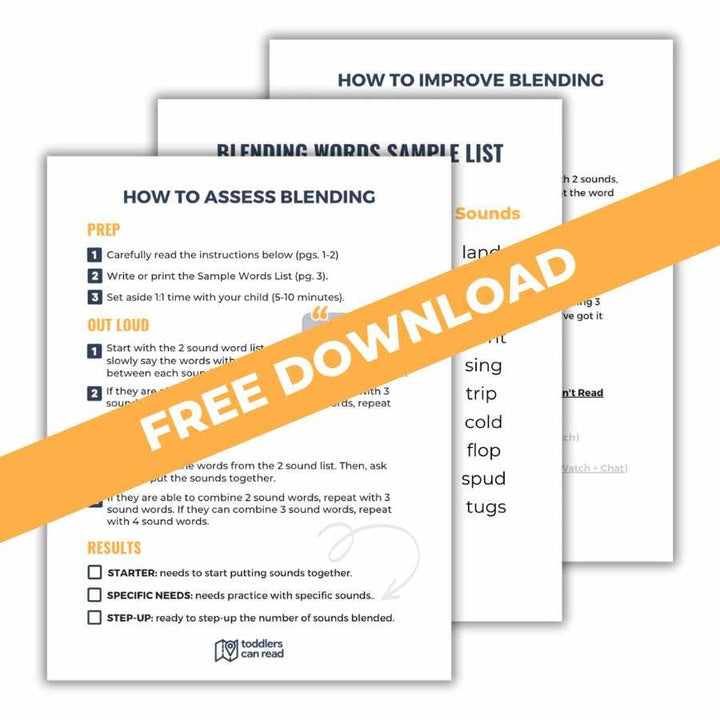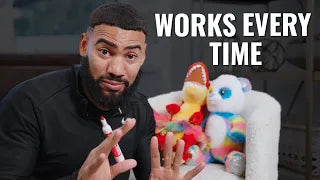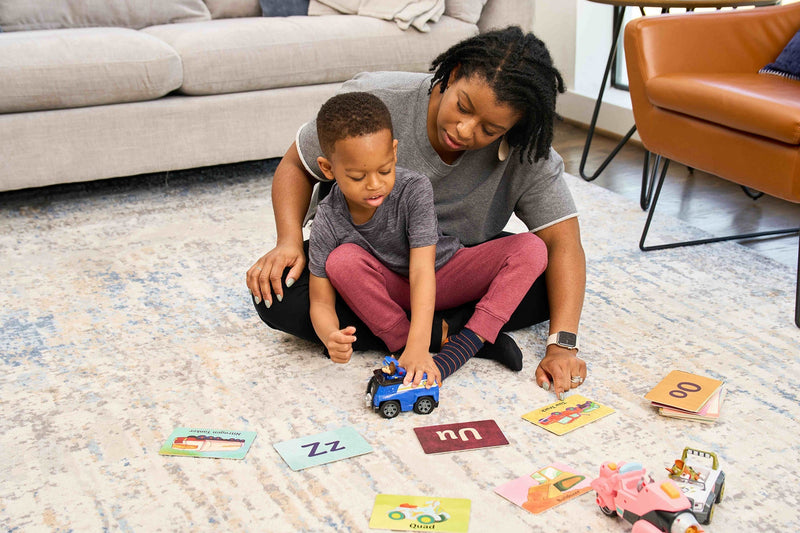One of the most popular questions I get asked by parents is whether or not my approach to teaching reading works for children with learning differences (speech delays, autism, dyslexia, ADHD, and so on).
And this is a fair question to ask. As a parent—especially if your little one has a learning difference—it can be overwhelming to figure out what information is right or wrong or how to give your child the help they need.
A Quick Disclaimer
In this blog post, I'm going to tell you about my courses and how my approach to teaching reading is different from what many other folks do so you can make an informed decision for your little one.
But please note, I am not going to dive into the specifics of each learning difference or try and diagnose specific challenges; I'll leave that to the specialists.
Your Beliefs Matter
I also want to make something clear before we get started:
If you don't believe your child can learn to read, then they won't.
Which means if you've already made up your mind that your little one can't read because of XYZ learning difference, then they won't. It's as simple as that. Your limiting beliefs about your child are going to impact how you teach them, and I am not here to change your beliefs.
So if you don't think your little one is capable and want someone (like me) to confirm that it's not worth the effort... I'm not the guy. I'm sorry. There are lots of folks online who will tell you exactly what you want to hear. But I'm not the one.
But if you do believe in your child's ability to learn, I'm here to help you make an informed decision on how to teach your little one!
The Process of Learning to Read
To understand what your child needs in a reading program, you must first understand how learning to read works. And on a very basic level, learning to read consists of 3 steps:
- Learning the sounds.
- Blending those sounds together into words.
- Learning more advanced patterns and strategies to read longer and harder words.
And this process of learning how to read is the same, no matter the kid.
Think about it like this: if you want to teach a kid how to play basketball, they will need to learn the same skills no matter what. They'll need to know how to dribble, pass, shoot, etc.
Now, gaining those skills will be harder for some kids than others. For example, shooting might be harder if you're short, or passing might be harder with less coordination... But at the end of the day, the skills they need to master to become a proficient basketball player are exactly the same.
And the same thing goes for learning to read: no matter the child or the learning differences they might experience, they will still need to master the same set of skills to become a proficient reader.
Every Child is Different
But just because the process is the same, that doesn't mean every kid will move through the process the same way. Some children will need extra time to learn their letter sounds, but learning how to blend will come easily to them; others will master certain letter sounds quickly, but find others more challenging to learn.
And this will be especially true for your little one. If your little one has a speech delay, autism, dyslexia, ADHD, or anything else, they're going to learn at their own pace, they're going to find some concepts or strategies more challenging to learn, and they're going to need a reading program that supports that.
How Other Programs Teach Reading
When you look at the other reading programs out there, you'll see that most of them have a lot in common.
Some of them, like Hooked On Phonics, will send you pretty workbooks and resources in the mail. Others, like "Teach Your Child to Read in 100 Easy Lessons," will give you daily lesson plans for what to teach your little one.
But the problem with programs like these is that they don't adjust to meet your child's specific needs. Almost every book, course, program, etc. says to teach this on Monday, teach this on Tuesday, teach this on Wednesday... They don't tell you how to slow down if your child isn't getting it, how to speed up if your child gets it quickly, or how to help your child focus and engage in the lesson if they're struggling.
How My Courses Teach Reading
The difference between my courses and others is that I don't take a one-size-fits-all approach. My lessons are designed in a way that can be tailored to meet the needs of each individual child.
My courses come with access to full lesson plans, a suggested order to teach sounds, a suggested blending sequence, and videos of model lessons. But more importantly, I'll give you the knowledge and understanding you'll need to customize your lessons to fit your little one.
So if your question is whether or not my courses work for children with learning differences, my answer is that I genuinely believe children with learning differences deserve an approach like mine more than anyone else. They deserve a data-driven approach that fits their individual needs, whether that's through my course or something similar.
There are plenty of children who you could throw into a class of 25 students and will learn to read just fine- yours might not. But with the right strategies that focus on exactly what they need, they can become strong readers like anyone else.
My Own Experience Doing This
Personally, I started teaching my son to read when he was 18 months old, and he was reading really well by 2. And that's not because he was exceptionally bright or anything like that; we know 2-year-olds aren't geniuses from day 1.
The reason he was able to read so early is because the lessons I taught were custom-tailored to him. We went through the same steps every child takes, but at his own pace and in a way that worked best for him. He never felt overwhelmed, and his confidence with reading continued to grow, all because I met him exactly where he was at.
And I believe your child deserves that, too, no matter their learning difference.
If You Are Interested in My Courses...
Now, if you don't have any interest in purchasing my courses, that's completely fine. I hope this blog post has given you some things to consider when choosing what reading program to use if your little one has some kind of learning difference.
But if you've made it this far and want to know more about my courses, I have three of them:
- Learning Sounds, where I walk you through how to teach the primary sounds in fun, developmentally appropriate way.
- Blending Words, where your child will learn how to take the sounds they learned in the first course and start putting them together to read words.
- Reading Books, where I teach you how to introduce more advanced sounds (like 2-letter sounds, long vowels, consonant digraphs, and blends) and teach tricky words.
You can also purchase all 3 courses with the Full Course Bundle.
Each course also comes with a free bonus course called Your Toddler's Behavior, which will help you address any behavior challenges you might have during learning time. This will be especially helpful if you're worried about getting your child to focus or engage during your lessons.
Not ready to buy the courses yet? That's okay! I also have a Free Training with a live chat where you can ask me questions.
And whether you decide to use my resources or not, I hope you feel empowered to meet your little one where they're at and that you truly believe they have what it takes to become a strong reader, with or without a learning difference.


